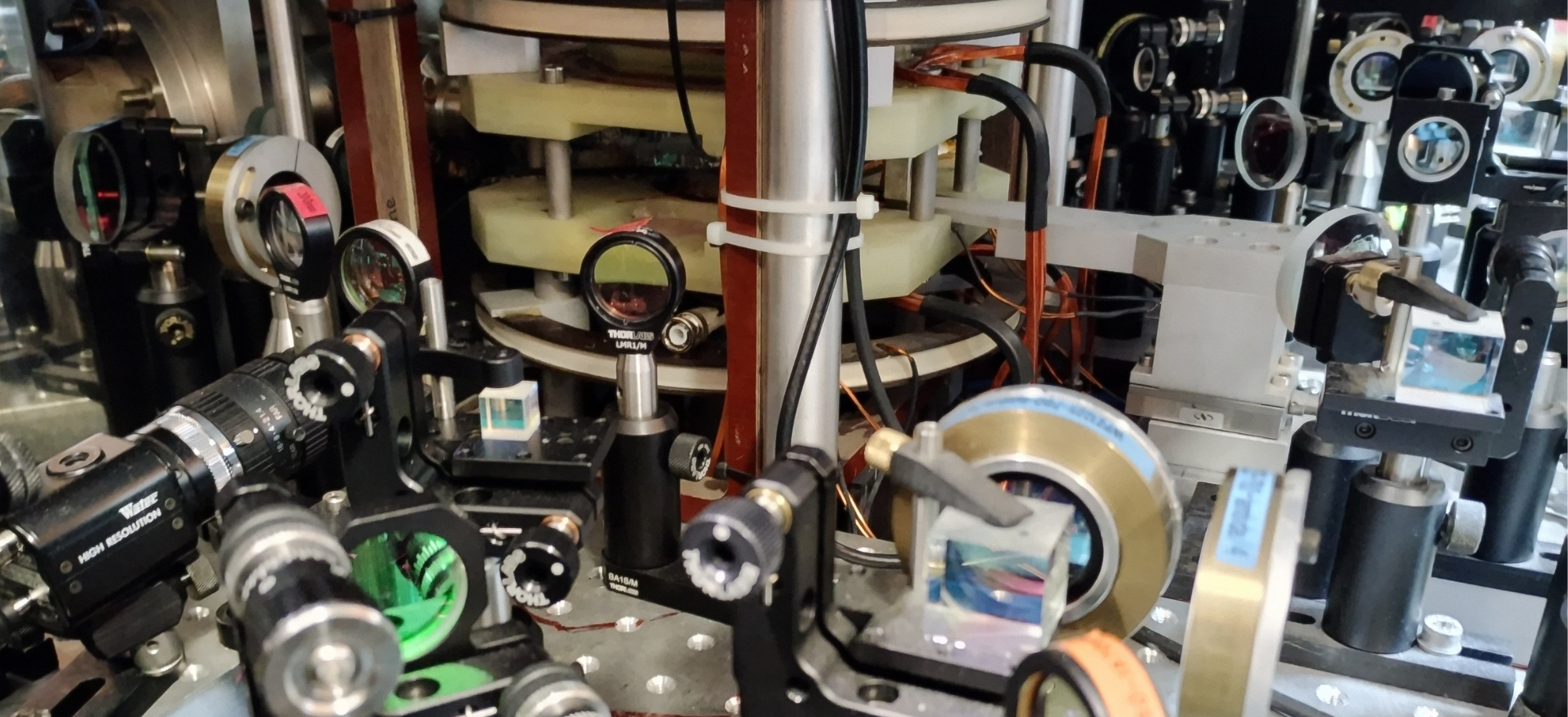
Scientists in our Quantum Light & Matter research group have set a new world-record for quantum coherence in ultracold molecules, in a collaboration with colleagues at Temple University and Rice University.
Unparalleled precision
In their experiments, the group was able to cool gases of atoms and molecules down to a millionth of a degree above absolute zero, enabling the effects of quantum mechanics to be studied with unparalleled precision.
Prof Simon Cornish and Dr Philip Gregory lead an experiment to study RbCs molecules at ultracold temperatures. These are relatively simple molecules consisting of one rubidium (Rb) atom and one caesium (Cs) atom bound together.
One attractive feature of RbCs molecules is that quantum information can be encoded into their rotation. However, typically this information is lost by decoherence over a few milliseconds.
Magic Trap
In their latest experiments, published in the journal Nature Physics, they have developed a technique using a magic trap for the molecules which significantly suppresses this decoherence.
In this trap, they were able to keep the molecules "spinning" quantum mechanically for over 1 second. A 30-fold increase over the previous state of the art.
This increase in coherence time is a significant step forward for the field of Quantum Physics. Crucially it allows Physicists to detect long-range dipolar interactions between molecules, opening up applications in quantum computing, simulation and sensing.






